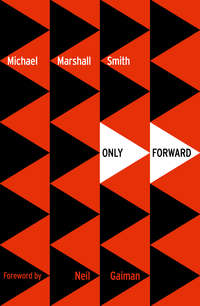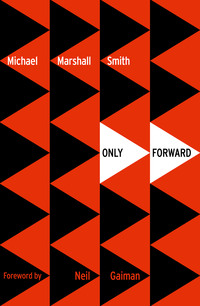
Полная версия
One of Us
I was shown into a small room off the main corridor. Stratten sat behind a desk, and I lounged back in the other available chair.
‘So what's the deal?’ I asked, trying to sound relaxed. There was something about the guy opposite which put me on edge. I couldn't place his accent. East Coast somewhere, probably, but flattened, made deliberately average – like an actor covering his past.
He leaned forward and turned the console on the desk to face me. ‘See if there's anything you recognize,’ he said, and pressed a switch. The console chittered and whirred for a moment, and flashed up ‘PR/43 @ 18/5/2016’.
The screen bled to black, and then faded up again to show a corridor. The camera – if that's what it was – walked forward along it a little way. Drab green walls trailed off into the distance. On the left-hand side was another corridor. The camera turned – and showed that it was exactly the same. Going a little quicker now, it tramped that way for a while, before making another turn into yet another identical corridor. There didn't seem to be any shortage of corridors, or of new turnings to make. Occasional chips in the paint relieved the monotonous olive of the walls, but other than that it just went on and on and on.
I looked up after five minutes to see Stratten watching me. I shook my head. Stratten made a note on a piece of paper, and then typed something rapidly on the console's keyboard. ‘Not very distinctive,’ he said. ‘I don't think the donor's very imaginative. And you lose a great deal, just getting the visual. Try this.’
The picture on the screen changed, and showed a pair of hands holding a piece of water. I know ‘piece of water’ doesn't make much sense, but that's what it looked like. The hands were nervously fondling the liquid, and a quiet male voice was relayed from the console's speaker.
‘Oh, I don't know,’ it said, doubtfully. ‘About five? Six and a half, maybe?’
The hands put the water down on a shelf, and picked up another bit. This water was a little smaller. The voice paused for a moment, then spoke more confidently. ‘Definitely a two. Two and a third at most.’
The hands placed this second piece down on top of the first. The two bits of water didn't meld, but remained distinct. One hand moved out of sight and there was a different sound then, a soft metallic scraping. That's when I got my first twitch.
Stratten noticed. ‘Getting warmer?’
‘Maybe,’ I said, leaning to get a closer look at the console. The point of view had swivelled slightly, to show a battered filing cabinet. One of the drawers was open, and the hands were carefully picking up pieces of water – which I now saw were arrayed all around, in piles of differing sizes – and putting them one by one into different drop files. Every now and then the voice would swear to itself, take out one of the pieces of water and return it to a pile – not necessarily the one it had originally come from. The hands started moving more and more quickly, putting water in, taking water out, and all the time there was this low background noise of the voice reciting different numbers.
I stared at the screen, losing awareness of the office around me and becoming absorbed. I forgot that Stratten was even there, and it was largely to myself that I eventually spoke.
‘Each of the pieces of water has a different value, not based on size. Somewhere between one and twenty-seven. Each drawer in the filing cabinet has to be filled with the same value of water, but no-one told him how to figure out how much each piece is worth.’
The screen went blank, and I turned my head to see Stratten smiling at me. ‘You remember,’ he said.
‘That was the dream I had just before I woke up. What the fuck's going on?’
‘We took a liberty last night,’ he said. ‘The proprietor of the hotel you stayed in has an arrangement with us. We subsidize the cost of his rooms, and provide the consoles.’
‘Why?’ I reached unthinkingly into my pocket and pulled out a cigarette. Instead of shouting at me or pulling a gun, Stratten simply opened a drawer and gave me an ashtray.
‘We're always looking for new people, people who need money and aren't too fussy about how they get it. This is the best way we've found of locating them.’
‘Great, so you found me. And so?’
‘I want to offer you a job as a REMtemp.’
‘You're going to have to unpack that for me.’
He did. At some length. This is the gist:
A few years previously someone had found a way of taking dreams out of people's heads in real time. A device placed near the head of a sufficiently well-off client could keep an eye out for electromagnetic fields of particular types, and divert the mental states of which they were a function out of the dreamer's unconscious mind and into an erasing device. The government wasn't keen on the idea, but the inventors had hired an attorney trained in Quantum Law, and no-one was really sure what the legal position was any more. ‘It depends’ was as near as they could get.
In the meantime a covert industry was born.
The obvious trade was in nightmares, but they don't happen very often, and clients balked at buying systems which they only needed every couple of months. They'd only pay on a dream-by-dream basis, and the people who'd developed the technology wanted more return on their investment. Also, nightmares aren't usually so bad, and if they are, they're generally giving you information you could do with knowing. If you're scared crapless about something, there's often a good reason for it.
So gradually the market shifted to anxiety dreams instead. Kind of like nightmares, but not usually as frightening, these are the dreams you get when you're stressed, or tired, or fretting about something. Often they consist of minute and complex tasks which the dreamer has to endlessly go through, not really understanding what they're doing and constantly having to restart. Then just when you're starting to get a grip on what's going on, you slide into something else, and the whole cycle starts again. They usually commence just after you've gone to sleep – in which case they'll screw up your whole night – or in the couple of hours before waking. Either way you wake up feeling tired and worn out, in no state to start a working day when it feels like you've already just been through one.
Anxiety dreams are much more frequent than nightmares, and tend to affect precisely the kind of middle and high management executives who were the primary market for dream disposal. The guys who owned the technology changed their pitch, rewrote the copy in their brochures, and started making some serious money.
But there was a problem.
It turned out that you couldn't just erase dreams. That wasn't the way it worked. Over the course of eighteen months the company started getting more and more complaints, and in the end they worked out what was going on.
When you erase a dream, all you destroy is the imagery, the visuals which would have played over the dreamer's inner eye. The substance of the dream, an intangible quality which seemed impossible to isolate, remains. The more dreams a client has removed, the more this substance is left behind: invisible, indestructible, but carrying some kind of weight. It hangs around in the room the dream has been erased in, and after thirty or so erasures it gets to the point where the room becomes uninhabitable. It's like walking into a thunderstorm of competing subconscious impulses – absolutely silent but impossible to bear. After a few weeks, the dreams seem to coalesce still further, making the air so thick that it becomes impossible to even enter the room at all.
Unfortunately, the kind of client who could afford dream disposal was exactly the type who was turned on by litigation. After the company had swallowed a few huge out-of-court settlements on bedrooms which were now impassable, they turned their minds to finding a way out of the problem. They tried diverting the dreams into storage data banks, instead of just erasing them. This didn't work either. Some of the dream still seeped out of the hard disks, regardless of how air-tight the casing.
Then finally it clicked. The dreams weren't being used up. Maybe if they were …
They gave it a try. A client's transmitting machine was connected to a receiver placed near the bed of a volunteer, and two anxiety dreams were successfully diverted from the mind of one to the other. The client woke up nicely rested and full of vim, ready for another hard day in the money mines. The volunteer had a shitty night of dull dreams he couldn't quite remember, but was paid for his troubles.
No residue was left in the room. The dream was gone. The cash started flowing again.
‘And that's what you did to me last night?’ I asked, a little pissed at having my mind invaded.
Stratten held up his hands placatingly. ‘Trust me, you'll be glad we did. People have varying ability to use up other people's dreams. Most can handle two a night without much difficulty, three at the most. They get up feeling ragged, and drag themselves through the day. Usually they only work every other night – but they still make eight, nine hundred dollars a week. You're different.’
‘How's that?’ I knew this was most likely a stroke, but didn't care. They didn't come along that often.
‘You took four dreams last night without breaking sweat. The two you've just seen, and another two – one of which was so boring I can't bear to even watch just the visuals. You could probably have taken a couple more. You could make a lot of money.’
‘How much is a lot?’
‘We pay according to dream duration, with additional payments if they're especially complex or tedious. Last night you erased over three hundred dollars' worth – and that doesn't factor in a bonus for the dullest one. Depending how often you worked, you could be earning between two and three thousand dollars. A week.’ He closed the pitch. ‘And we pay cash. Dream disposal is still in an unstable state with regard to legality, and we find it more convenient to obfuscate the nature of our business to some of the authorities.’
He smiled. I smiled back.
Three thousand dollars is an awful lot of bar tending.
It wasn't a difficult decision.
I signed a non-disclosure contract. I was leased a receiver, and had it explained to me. Basically I could go anywhere in the continental United States, as long as I kept the machine within six feet of my head while I was asleep. I didn't have to go to bed at any particular time, because the dreams booked to me were just spooled into memory. As soon as the device sensed I was in REM sleep it fed the backlog into my head. When I got up in the morning my nightwork would be there on the screen like a list of email messages: how long the dreams had been, when they started and finished, and whether they qualified for bonus payment or were just hack work.
And at the bottom of the list, the good news. A figure in dollars. I found I could take six or seven dreams a night without too much difficulty. Some days I'd be groggy and find it difficult to concentrate on anything more complex than smoking, but when that happened I'd just take the following night off.
After six months I was recalled to REMtemps' offices and asked if I'd like to volunteer for a higher proportion of bonus dreams. I said ‘Hell, yes’, and my earnings took another jump upwards. I met a hacker called Quat in the Net, and hired him to write me a daemon which would circulate my earnings around a variety of virtual accounts: every now and then the IRS or some other ratfink would close in on one of them, but when that happened I'd just swallow the loss and keep the rest of it on the move. I also paid him a lot of money to erase a particular incident from the LAPD's crimebank, which meant I could go back to California.
It was a good life. I travelled from place to place, this time as a person with money instead of someone looking for a score. After a while it came to seem natural to wear better clothes, to head for the upscale hotels. I got used to the other things that money gets you, like a modicum of respect, and bed companions who don't issue you with an invoice in the morning. I kept in touch with the few people I cared about through the phone, the Net and occasional flying visits. I dropped in on Deck in LA a couple times, and the city began to lose its darkness for me. I began to think of moving back there, of letting it be my place once again.
There were occasional downsides. Boredom. The exhaustion which came after a night full of bonuses, and the emotional flatness from being forever on the move and never having a relationship which lasted longer than a few days. There were periods when I'd go a little weird, and I came to realize that was because I'd spent so many nights having other people's dreams that I hadn't had time for any of my own. When that happened I'd clock off, let my mind catch up and do the subconscious boogie. After a few days I'd be fine again.
I'd found some action which was safe, which I was good at, and which paid big-time money.
That should have been enough.
Then five months ago I got a call from Stratten. It came very early in the morning, and I was crashed out in a king-sized bed on the top floor of a hotel in New Orleans, the debris of a hard evening's pleasure spread all around me. By then I was back more or less full-time in LA, and had an apartment in Griffith which I called home. I wasn't supposed to hang in one place, however, so I took enough trips out of town to convince REMtemps I was still itinerant.
I couldn't remember the name of the woman beside me, but she was a whizz at answering the phone. By the time I'd realized it was ringing she already had it up out of its cradle and at her ear. When she passed it over to me I sat up, head foggy and full of half-remembered tasks and confusions. I suppressed the urge to look at the receiver to see how much I'd earned. From the way I felt I knew it was going to be considerable.
‘Mr Thompson,’ said that voice, and I instantly became more awake. ‘Who answered the phone?’
‘I don't know,’ I said stupidly. ‘I mean, why? What difference?’
‘I assume she's someone you've met very recently?’
‘Yes.’ I glanced across the room to where the woman was standing. Candy, I think her name may have been, though she may well have spelled it with an ‘i’. At the end, I mean. She seemed nice, and I got the feeling she actually liked me. I was wondering whether she might be interested in hooking up with me for a while. A whole week, maybe, until I went back to LA. At that moment she was making coffee with no clothes on, and I was hoping Stratten would stop talking soon.
‘You met her last night, correct?’ he asked. I admitted that was the case. ‘And she's in your hotel room. But she answered the phone after a single ring.’
I took a sip from the beer bottle by the bed. ‘So?’
‘Think about it.’
I watched as Candy stirred just the right amount of sugar into my coffee. I got what he was driving at. ‘Don't talk shit,’ I said. Candy winked at me and slipped into the john.
‘Get rid of her and come to the office,’ Stratten said. ‘I have a proposal for you.’ The line went dead.
I got out of bed and put the dream receiver in my bag. The readout said I'd earned over a thousand dollars. I got dressed, and when Candy came back out, spruced up and fresh and ready to play, I said I had to go out for a while. She took it badly, and then well, and then badly again. She tried a lot of things to get me to stay. When it was clear that wasn't working, she said she'd hang in the room and wait for me. For however long it took.
Call me someone with low self-esteem, but women don't usually react that way after a single night in my company. I'm kind of an acquired taste. It wasn't proof, but it was enough to make me gather my things and walk out the door, leaving her standing shouting after me. In the elevator I did what I'd been told to do in such circumstances, and pressed a recessed button on the side of the dream receiver. There was a soft ‘crump’ sound from within and the readout panel went black. The unit was now dead, logic board fused into inexplicability.
On the plane to Jacksonville it occurred to me to wonder why – if Candy had been some kind of federal agent – she hadn't just done whatever she needed to do while I was sleeping. If there was one thing a REMtemp was guaranteed to do most nights, it was catch some zeds. Maybe she'd needed to talk to me, get names or something. I'd only ever worked on the wrong side of the law, so I didn't know how the good guys did things. Perhaps they'd had me pegged as a potential witness against Stratten, in which case they obviously hadn't met the guy. It didn't make much difference. I had to go back to the office anyway now, to pick up a replacement receiver.
Slumped over a table in an up-market café round the corner, I mainlined a gallon of coffee and a half pack of cigarettes before reporting to REMtemps. Usually the fog faded to a soft confusion after a couple hours, but this morning it felt like I'd never slept in my whole life. I wanted to be sharp to respond to whatever proposal Stratten had in mind, but in the end I settled for being not actually asleep and just lurched over there.
This time we didn't meet in a side office, but in Stratten's own den. It was no bigger than your average football field, but luckily we sat at the same end so we didn't have to shout. I told him I'd done what he told me, and he smiled. I added that I'd fritzed the machine, also as per instructions, and that I'd need another one. He smiled again. Then he started talking.
Though I didn't know it, a number of the company's most important clients now asked for me specifically. Most REMtemps left vestiges behind, elements personal to the dreamer which they couldn't assimilate. I erased the whole lot, every little shadow and whisper. Hence the bonuses. Hence also the fact that he wanted to offer me a more lucrative line of work.
Memories.
As soon as he said the word I started shaking my head, vigorously and at high speed. Memories can be externalized, but it does't work in the same way as dreams. They can't be erased, because they are a function of something that has happened in the real world. They can merely be blanked or stored somewhere else, on a temporary or permanent basis, and doing so is absolutely and completely illegal.
For a start, it means that polygraphs don't work. If a suspect genuinely has no memory of committing a crime, fooling the lie detector is a breeze. In a way, it isn't even deception. As far as the guy's concerned, the incident has never happened.
Plus this: people are their memories. What has happened is what you are. If you remove the childhood incidents where someone learnt right from wrong, you end up with a guy who's kind of difficult to deal with. He just doesn't care. Such people don't understand why they shouldn't steal, or rape, or murder – and that makes them better at it. In the unlikely event they do get caught, another memory dump just before the polygraph will blank that line of evidence straight away.
A test case eighteen months before had settled the issue. A freelance proxy dreamer who'd agreed to carry a criminal's memory of a certain event during the trial was sentenced to two life terms – exactly half what the real culprit would have received had he been convicted.
In other words, memories weren't a trade with prospects, and I said as much to Stratten. He heard me out, and when I'd ground to a halt, he let a silence settle. After it had gone so long that it seemed like what I'd said had been to another person on some other day, he began.
‘Yes,’ he said. ‘The caretaking of criminal recall is illegal.’
‘Good,’ I said affably. ‘That's settled then. Where do I pick up my new receiver?’
‘However,’ Stratten continued, as if I'd said nothing at all, ‘the memories I'm referring to do not relate to illegal activities. I'm talking about trivial things, and only temporary transferrals.’
‘If they're that trivial, let the clients deal with them,’ I suggested. ‘And if it's only temporary, tell them to try a few beers instead. Nope, and no thank you. Also, no.’
‘Five thousand dollars a memory,’ he said. I stopped speaking before my mouth had even framed the next word. ‘The memory could be a single instant, an individual fact, and you'd never hold them for more than a week. Usually only a few hours. You could score a quarter million dollars over twelve months without breaking sweat. Plus you can still do the dreamwork.’
He let that sink in for a while, and I thought about it. About pulling in seven figures a year. The last couple of years had been good, but wealth has a way of operating on a sliding scale. When you've bought all the stuff you can at your current level, you start noticing the things you still can't have. And start wanting them instead.
Looked at another way: a couple years' work, some sensible investments, and I'd never have to lift a synapse again.
‘No,’ I said. I knew where I was, and I was doing okay.
‘You'll find the answer's “yes”,’ Stratten said, ‘when you ask me where you pick up your new receiver.’
My mind was still dulled from the night's work, and I didn't get what he was driving at. I just fed him his line. ‘Where?’
‘Unless you accept my offer, you don't,’ he said. ‘You take memory work, or you're fired.’
I stared at him. ‘You're a fucker, aren't you,’ I said.
‘I have heard that opinion expressed.’ His smile didn't waver, and I realized it wasn't a smile and probably never had been.
I looked out the window for a while, more to keep him waiting than for any other reason. I understood now that Candy hadn't really liked me, and that she hadn't even been a Fed. She'd been nothing more than a manipulation tool, hired by Stratten. He would have known that I'd just woken up when he called, and that I'd be unable to judge the situation properly after a night full of heavy bonuses and bed-oriented frolicking. He was right. Candy had done her job well.
In that moment I understood both that I didn't really have any idea of what Stratten was capable of, and that I just couldn't tell with women any more. I'm not sure which was worse.
Stratten had me, and he knew it. Without dreamwork I was back on the streets. I had money squirrelled away, spinning round the tracks Quat had laid for it in the ether, but not enough. Too much of it had been pissed away.
With memory work I could buy my own bar, if it came to it.
‘Okay,’ I said.
Three
At two-thirty in the morning I saw her, walking up the street towards a small hotel a couple blocks off the Boulevard. It was called the Nirvana Inn, but unless that ineffable plane has peeling paint on the outside and no room service after ten, I suspect the name was a bit of a misnomer. I was sitting in a diner opposite, drinking bad coffee and biding my time, and I recognized her immediately. It was Laura Reynolds. No question.
This was the first time I'd seen someone I was caretaking for, and it felt disturbing, wrong. Like remembering you're dead, or seeing a doppelgänger who looks nothing like you. She was late twenties, thin and wired – trying to remember how to look like drift life after years of learning to forget. Her face was bony, pretty, intense. She walked like someone who'd spent most of the evening in a bar, and flash-lit by neon in the slanting rain she looked like a computer sprite which had suddenly found itself in the wrong video game, with no instructions.
I sympathized, just for a moment. I felt pretty much the same way.
‘That's her, isn't it?’ said the clock, who was standing on the counter next to my cooling cup. I'd let it ride back with me in the car to LA. It seemed only fair.
I nodded. ‘I owe you one.’ The clock had refused to tell me how he'd known where the woman was, saying it was a timepiece secret. I'd get it out of him sooner or later, but for the time being it didn't really matter. I'd found her.
I stayed put for a while, in case the flunky I'd talked to in the hotel forgot the fifty I'd laid on him and told the woman someone was looking for her. When five minutes had passed without incident I slipped off my stool, stumbling slightly. I leaned on the counter for a moment, blinking rapidly and waiting for my head to clear.






